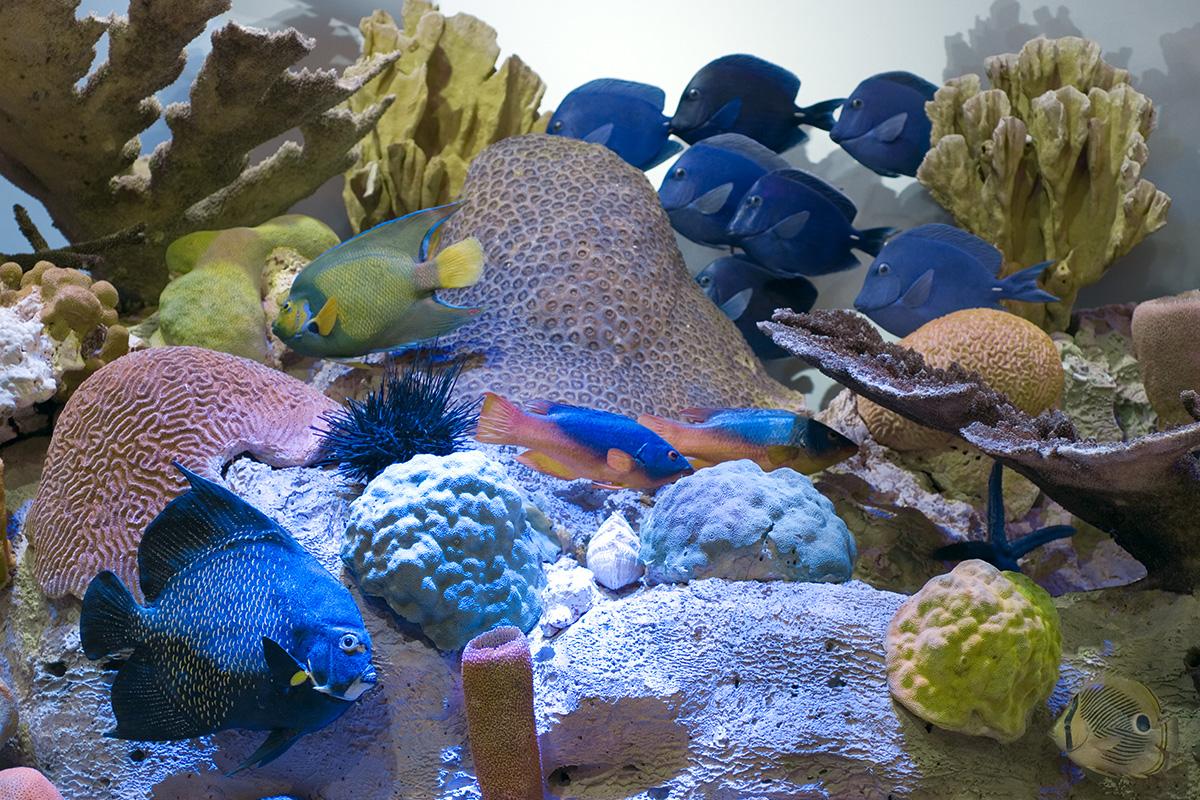In the project "Dioramas for the support of model-based learning in the natural sciences", the question of how dioramas and other non-formal places of learning and experience can contribute to the support of model-based learning is investigated using the example of the topic of coral reefs within the framework of the Associate Fellowship Fachdidaktik MINT of the Deutsche Telekom Foundation.
Dioramas (showcases in which e.g. scenes from nature, are depicted) are a special form of models in museums; they serve as visualization instruments of biological relationships and are therefore important didactic tools for the transfer of knowledge.
In the context of in-school and out-of-school learning, scientific studies have shown that school children often have only a naive understanding of models. They perceive models as teaching tools for visualization, but do not recognize their scientific value. For the development of scientific literacy, it is of great importance for students to understand that models are an integral part of scientific ways of thinking and working. Based on the theoretical framework for promoting model-based learning through dioramas (Moormann & Bélanger, 2019) and the model of model competence (Upmeier zu Belzen & Krüger, 2010), the effect of exposure to natural history dioramas, artworks, immersive experiences through virtual reality (VR) and nature excursions on the learning process of learners, with regard to biological phenomena and natural ecosystems, is investigated.
The results of this study are intended to identify ways to promote model competence and thereby support teachers of STEM subjects, in their educational development.
Duration:
11/2020 bis 10/2023
